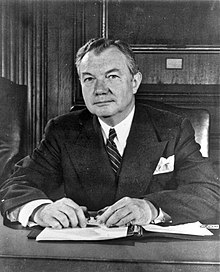Better Dead Than Read?
*****************************************************************************
Not being blown up justifies reasonable intrusions into our privacy
*****************************************************************************
The fainting and palpitations continue over the National Security Agency’s surveillance of phone traffic. What its critics don’t realize is that they are forcing a debate that they will likely lose.
Back during the Cold War (seemingly several millenia ago), there was a saying “better dead than red” meaning that living under communism was worse than being dead. The phrase was over-wrought but did reflect a disdain that many in the west had for the oppressive system in the Soviet Union. The updated version to that siren call now seems to be “better dead than have your communications read” by the government, which is not only unhinged thinking but not even happening except when probable cause exists. The program that has caused such an uproar does not look at the text of calls but merely patterns of when calls are made and how often.

Supreme Court Justice Robert H. Jackson was correct when he said “the constitution is not a suicide pact.”
_________________________________
This is why it was so welcome when last week President Obama defended the Bush-era surveillance program as necessary to protect Americans at the price of only “modest encroachments” on personal privacy.
Unlike Candidate Obama on the campaign trail in 2008, President Obama realizes that “You can’t have 100% security and also then have 100% privacy and zero inconvenience.” Mr. Obama when on to tutor us that “you know, we’re going to have to make some choices as a society.”
Bravo, Mr. President, and better late than never. Somewhere, Dick “Darth” Cheney is nodding in approval.
Our evolving president seems to understand what too many Liberals and Tea Partiers don’t: that as U.S. Supreme Court Justice Robert Jackson said decades ago, the constitution is not a suicide pact. The liberties and freedoms it affords must be balanced against existing threats to it that would permanently deprive people of such liberties if allowed to. Giving unlimited liberty and privacy to the citizenry today is of little benefit if it results in destruction or deprivation of freedom tomorrow and thereafter.
And never missed is how Liberals have no problem with government controlling facets of people’s lives from health care, to the most inane aspects of the employer-employee relationship to even the kind of auto we drive yet Liberals get unhinged when government makes the smallest and most benign intrusion into the machinations of society in order to protect us from our enemies.
It was inevitable that as distance occurred from the 9/11 attacks, the weighting of privacy and convenience would begin to catch up with security and national defense. Fortunately, the public seems disinterested in trading the allusion of more privacy for carnage like the 9/11 attacks. Let’s hope this September 12th mentality sticks.
-I.M. Windee


